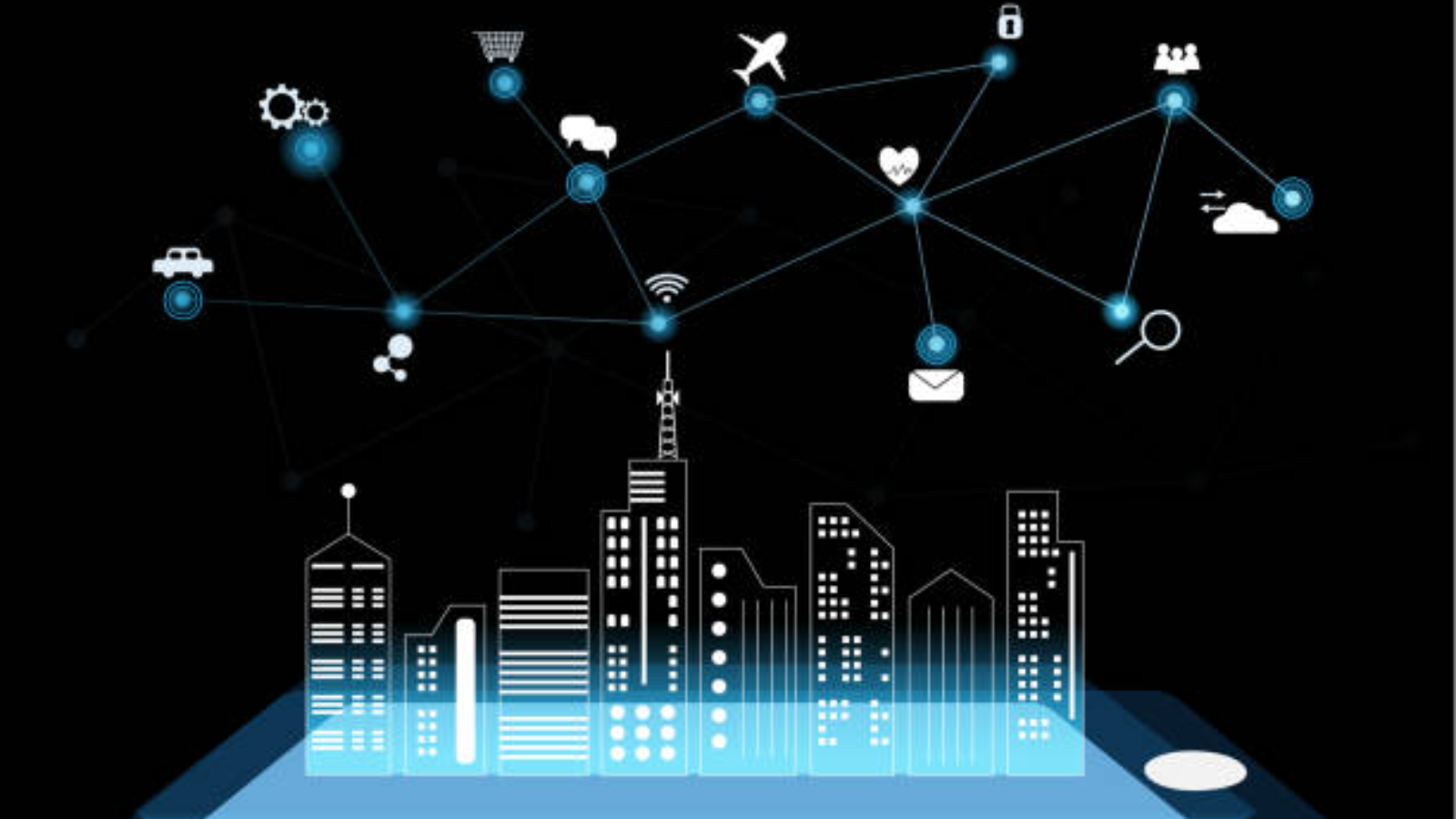In this Article
Introduction
In an era where technology permeates every aspect of our lives, the concept of a “smart city” has emerged as a beacon of innovation and efficiency. But what does “smart city” mean? Simply put, a smart city leverages digital technology and data-driven solutions to enhance the quality of life for its residents, improve urban services, and optimize resource management.
This article delves into the intricacies of smart cities, exploring their components, benefits, and the challenges they face.
What Does Smart City Mean?
A smart city integrates information and communication technology (ICT) and various physical devices connected to the Internet of Things (IoT) network to optimize the efficiency of city operations and services and connect to citizens. This integration results in several transformative benefits:
1. Enhanced Urban Services
- Efficient Public Transportation: Smart cities employ advanced traffic management systems and real-time data to reduce congestion and improve the efficiency of public transportation. For instance, smart traffic lights can adjust their timing based on current traffic conditions, reducing wait times and improving traffic flow.
- Waste Management: IoT-enabled waste bins can notify city services when they need to be emptied, optimizing waste collection routes and reducing operational costs. This also helps in maintaining cleaner urban environments.
- Smart Energy Grids: These grids use digital technology to monitor and manage energy usage more efficiently. They can integrate renewable energy sources, reduce energy waste, and provide real-time data to consumers to help them manage their energy consumption better.
2. Improved Quality of Life
- Public Safety: Smart cities use surveillance cameras, sensors, and data analytics to enhance public safety. For example, predictive analytics can help law enforcement agencies anticipate and prevent crimes before they occur.
- Healthcare: Telemedicine and remote monitoring systems enable better healthcare services and accessibility, especially for the elderly and those with mobility issues. Smart health devices can monitor vital signs and alert healthcare providers in case of emergencies.
- Education: Digital classrooms and online resources make education more accessible and personalized. Smart cities often provide free Wi-Fi in public areas, enabling students to access educational resources anytime, anywhere.
3. Sustainability and Environmental Benefits
- Reduced Carbon Footprint: Smart cities promote the use of electric vehicles and renewable energy sources, significantly reducing greenhouse gas emissions. Smart grids and energy-efficient buildings further contribute to a smaller carbon footprint.
- Water Management: Advanced sensors and data analytics help in monitoring water quality and managing water resources more efficiently. This ensures a sustainable supply of clean water and reduces wastage.
- Green Spaces: Smart cities often incorporate green spaces and vertical gardens to improve air quality and provide residents with recreational areas. These green spaces also help in reducing the urban heat island effect.
Challenges and Considerations
While the benefits of smart cities are numerous, several challenges need to be addressed:
1. Data Privacy and Security:
- Robust Cybersecurity Measures: With the vast amount of data being collected, ensuring the privacy and security of citizens is paramount. Robust cybersecurity measures and data protection regulations must be in place.
- Data Ownership: Clear guidelines on data ownership and usage rights are essential to protect citizens’ privacy.
- Transparency: Transparency in data collection and usage practices can build trust among residents and encourage participation in smart city initiatives.
2. Infrastructure Costs:
- Initial Investment: The initial investment required for smart city infrastructure can be substantial. Governments and city planners need to consider long-term benefits and potential cost savings.
- Public-Private Partnerships: Collaborations between public and private sectors can help share the financial burden and bring in expertise from various fields.
- Scalability: Ensuring that smart city solutions are scalable can help manage costs and accommodate future growth.
3. Digital Divide:
- Equal Access: Ensuring that all citizens have access to the digital tools and services provided by a smart city is crucial. Efforts must be made to bridge the digital divide and provide equal opportunities for all residents.
- Digital Literacy: Promoting digital literacy through educational programs can empower residents to take full advantage of smart city technologies.
- Affordable Connectivity: Providing affordable internet access and digital devices can help ensure that all residents benefit from smart city initiatives.
Conclusion
Smart cities represent the future of urban living, offering a plethora of benefits that enhance the quality of life, improve urban services, and promote sustainability. By leveraging advanced technologies and data-driven solutions, smart cities can create more efficient, safe, and livable urban environments. However, addressing the challenges of data privacy, infrastructure costs, and the digital divide is essential for the successful implementation of smart city initiatives.
How Can We Help?
The AlphaX ecosystem is designed to address the challenges faced by smart cities. Our comprehensive solutions include advanced data analytics, robust cybersecurity measures, and scalable infrastructure to support the development and maintenance of smart city initiatives. We are committed to helping cities become smarter, more efficient, and more sustainable.
To learn more about how we can help your city transition into a smart city, visit our contact page.
References
Related Blog Posts
How Smart Cities Connect: Getting Started with Edge AI and IoT Technology
How to Get Started with Edge AI and IoT Technologies in Smart Cities: Overcoming Integration Challenges In recent years, the concept of smart cities has evolved from a futuristic Read More
5 Step Strategy: Ensuring Security and Privacy in 15-Minute Smart Cities
Introduction Ensuring security and privacy in 15-minute smart cities is a critical challenge as urban areas become increasingly connected through IoT and edge AI technologies. These cities aim to Read More
What is a smart city and the challenge of legacy systems
How to Get Started with Integrating Legacy Systems in Smart Cities Smart cities are transforming urban landscapes by leveraging technology to improve the quality of life for residents. However, Read More




